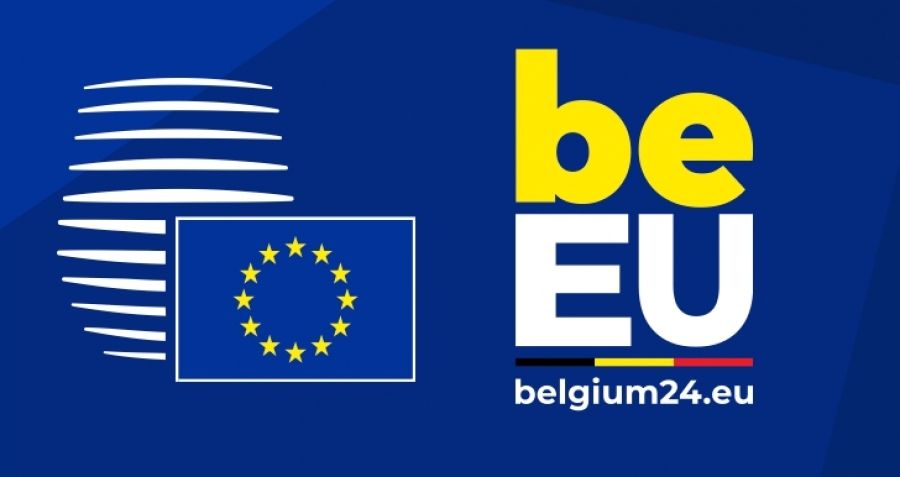As 2024 begins, Belgium has taken over the rotating EU Council presidency with an ambitious programme that seeks to respond to the ever-looming hot topic of the day, the Ukraine war and its wider effects.
It is only consequential then that Belgium’s programme for the next six months puts a special focus on the EU’s food security, a topic that was brought into sharp focus following the Russian invasion of Ukraine in February 2022.
That year, food prices had reached historic heights that left millions of people globally vulnerable to food insecurity.
Although Europeans are unlikely to face food shortages themselves, the Ukraine war presents an ongoing concerning scenario where global conflict, climate change and economic shocks expose food-system fragilities – hitherto unprecedent in the EU’s neighbourhood in terms of scale and knock-on effects.
They are also closely linked to achieving Europe’s sustainability in agriculture goals. This promises a revitalisation of the oft-touted but squarely stalled Farm to Fork Strategy, launched by the European Commission as an integral part of the Green Deal that seeks to greatly slash the EU’s greenhouse gas emissions.
Stuck in the mud
Farm to Fork started out promisingly enough but quickly found itself mired in intensely heated debates. With the EU elections in June fast approaching, many of its proposed laws fell through or hit roadblocks at the European Parliament or national parliaments as lawmakers were unwilling to anger powerful actors in the agricultural and food sectors.
Much to the dismay of campaigners and activists, not much is expected to change in 2024: a leaked version of the European Commission’s 2024 work programme seems to indicate that former key policy objectives, such as the sustainable food systems law or the long awaited update of the animal welfare legislation, are likely buried for good.
It’s evident that policymakers are unwilling to rush back into the Farm to Fork quagmire, which makes Belgium’s apparent instance on bringing some of its most controversial policy initiatives back to the fore all the more perplexing.
Case in point is Nutri-Score, a colour-coded front of package (FOP) nutrition label that has been under virtually constant criticism from EU member states and consumer protection groups since its creation in 2017.
Nutri-Score zombie
The Nutri-Score label’s grading system has been criticised as reductionist, with an algorithm that focuses excessively on a food’s individual components to the neglect of micronutrients, sparking concerns that European consumers could be misled by the information provided by Nutri-Score.
The intra-European debate on the validity of the labelling system in respect to alternative ones eventually became so divisive that the European Commission decided to put a decision regarding its EU-wide use on hold.
Now, Belgium plans to hold a scientific symposium in April on the label in order to “share experiences” on the system and address some of the most common criticisms.
However, Brussels will likely realise sooner than later that this move is ill advised, given that it will come with staunch opposition from Italy and Romania, reopening a pandora’s box of issues whose resolution is a distant dream as opposition to Nutri-Score is slowly rising across Europe.
The bigger picture
In light of the arguably more profound and serious issues revolving food security, no less due to their geopolitical aspect, re-opening a debate that no one wanted to continue speaks to a misplaced sense of priorities.
The EU already has its hands full dealing with the fall-out of a surge in grain imports from Ukraine, which has led to protests by farmers in Poland and Bulgaria.
Following the EU’s decision in October 2023 to lift the ban on Ukrainian grain, Poland and Hungary announced they would impose unilateral bans to protect their farmers from collapsing grain prices.
The result has been an internally ever more divided Union at a crucial time in the Ukraine conflict, where Brussels’ resolve to stand behind Kyiv seems increasingly fragile.
This isn’t merely bad optics, but an open sign of weakness, because the Commission has allowed the grain row to devolve into a an open bilateral conflict between Poland and Ukraine – an especially tragic and ironic state of affairs considering that Warsaw has been among the most enthusiastic supporters of Ukraine in its fight against Russia.
As Belgium embarks on its presidency, it’s clear that the EU would be more than well advised to get its own house in order on pressing geopolitical issues of domestic relevance before embarking on frivolous policy programmes.
______________________________________________________________________________________________________________________________________

Follow EU Today on social media:
Twitter: @EU_today
@EU_sports
Facebook: https://www.facebook.com/EUtoday.net/
https://www.facebook.com/groups/968799359934046
YouTube: https://www.youtube.com/@eutoday1049
______________________________________________________________________________________________________________________________________











